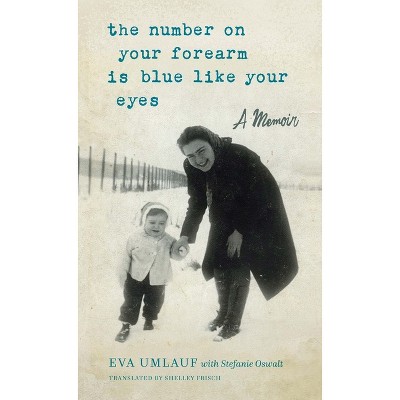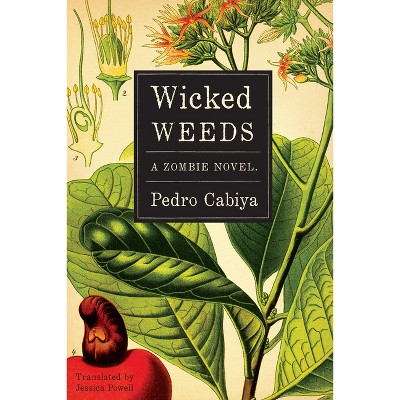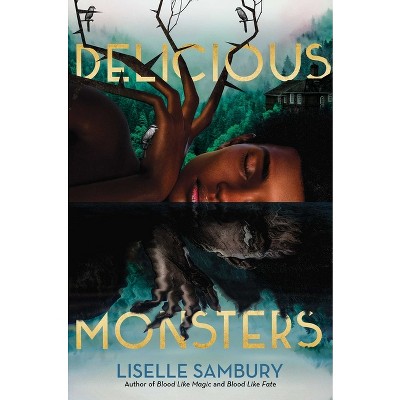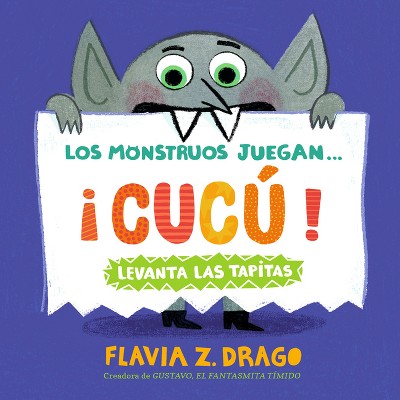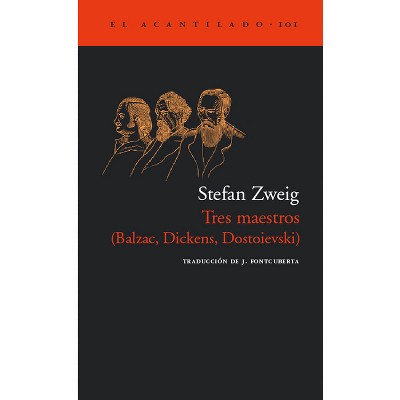Sponsored

Maestros & Monsters - by Robert Boyers (Paperback)
In Stock
Sponsored
About this item
Highlights
- This is a memoiristic book and a dual portrait, built around intense friendships with two leading public intellectuals who achieved celebrity status--Susan Sontag on a global scale, George Steiner principally in Europe, though also for a time in the US.
- About the Author: ROBERT BOYERS, born in 1942, founded the American quarterly magazine Salmagundi in 1965 and continues to edit the journal, to teach at Skidmore College in Saratoga Springs, New York and to direct the New York State Summer Writers Institute.
- 256 Pages
- Biography + Autobiography, Literary Figures
Description
Book Synopsis
This is a memoiristic book and a dual portrait, built around intense friendships with two leading public intellectuals who achieved celebrity status--Susan Sontag on a global scale, George Steiner principally in Europe, though also for a time in the US. For audiences at Woody Allen movies Sontag was the prime embodiment of the term "intellectual," whose famous 1965 essay "Notes on Camp" won her an enormous following. For viewers of French, German and British television over decades Steiner was the primary interview show talking head, igniting controversy on many fronts, while also commanding a loyal audience for thirty years as a book critic at The New Yorker. To know Sontag and Steiner, as this memoir suggests, was often to feel overmatched and yet also bemused and awe-struck. Both of them gave off an air of omniscience and self-confidence, as if they had taken to heart the words of the Nobel laureate Elias Canetti, who wrote, "I cannot become modest; too many things burn in me." Maestros & Monsters is the work of a well-known public intellectual who was close to Sontag and Steiner over a half century, and who managed to bring them together on several occasions--the only times they ever met. Those encounters are among the most bizarre episodes in this narrative, which also features extended encounters with such literary figures as Arthur Koestler, Edward Said, Phillip Rieff, James Wood and others.Review Quotes
Starred Review + Named to KIRKUS "Best Books of 2023 for Nonfiction" "A nimble, eminently readable tribute to a pair of literary giants who weren't shy of calling themselves such." "The species of intransigence that Robert Boyers admired in Sontag and Steiner, the friction-fed belief that sentences were not just scribbles, not just faulty transcriptions of reality -- they were reality. . . . For that he forgave them almost everything. And in this vivid affectionate, quietly combative book he persuades the reader to do the same.--James Marcus, TLS [Times Literary Supplement] "One of the most wince-inducing scenes in Maestros & Monsters takes place on a bus to an academic conference, where Sontag kept saying hello to Steiner, louder and louder, as he stared out the window, refusing to answer. Boyers blames their falling out on Sontag's failure to thank or repay Steiner after he obtained some rare books she asked for. But the whole episode sounds like it could have taken place in a kindergarten.... Boyers' account of his idols' bad behavior suggests the wisdom of this policy. Such anecdotes make Boyers' book delicious reading for connoisseurs of gossip about intellectuals.--Adam Kirsch, Jewish Review of Books"Robert Boyers has made in this sometimes brutally honest but always loving memoir of his difficult friends a moving contribution to the history of our intellectual culture. Boyers and his wife, the poet Peg Boyers, were for decades deeply involved with Sontag and Steiner's work, no less when they disagreed with them. What Sontag called 'the dramaturgy of ideas' and 'the dramaturgy of feeling' flow together in Boyers' portrait of brilliance and vulnerabilities, and the life of the mind as human passion." - Darryl Pinckney"Robert Boyers has managed not only to draw extraordinarily vivid portrayals of two writer-critics, but also to add a third portrait: that of the author himself, who plays a sort of wry pragmatic Sancho Panza role to these two disputatious Knights of Intellect. A thrillingly generous book, it deserves to be seen as following in the grand tradition of Samuel Johnson's Lives of the Poets, Sainte-Beuve's biographical sketches and Turgenev's Literary Reminiscences."--Phillip Lopate"This superb book takes us back to the last moments of the golden age of American letters. Despite inescapable faults and foibles of these figures, Robert Boyers lays bare with wisdom and wit their absolute commitment to the life of the mind and majesty of the intellectual vocation. His own profound capacity for friendship animates and elevates this fascinating book." -- Cornel West "Robert Boyers possesses a rare genius for friendship, and above all his book is a testament to friendship as a way of life, and as the medium in which thinking thrives. I loved it." -- Garth Greenwell Maestros & Monsters is not merely about the bad behavior of a couple of intellectuals. (How bad could they be, anyway, compared to actors, financiers, or rock stars?) Boyers delivers the gossip, but he also makes a serious case for the importance of Sontag and Steiner. Both were proudly independent and unafraid to dissent. They were a different species from today's intellectuals, who run with the herd, largely conforming to progressivism's neo-Stalinist orthodoxy.--David Mikics, 'The Last Jewish Intellectuals, ' Tablet
About the Author
ROBERT BOYERS, born in 1942, founded the American quarterly magazine Salmagundi in 1965 and continues to edit the journal, to teach at Skidmore College in Saratoga Springs, New York and to direct the New York State Summer Writers Institute. As a graduate student at New York University in 1965 he first got to know George Steiner, and a year later began correspondence with Susan Sontag, these initial contacts leading to intense, sometimes difficult friendships that persisted over decades. Boyers is the author of hundreds of periodical essays and of a dozen books, most recently a widely discussed book on the "culture wars" entitled The Tyranny of Virtue: Identity, The Academy & The Hunt for Political Heresies. His other books include two works on politics and the novel, a volume of short stories and a 2015 book on The Fate of Ideas. In 2009 he edited and wrote the introduction for George Steiner at The New Yorker, a book that has been published in more than twenty languages. Short Biographies of the Subjects of This Memoir:SUSAN SONTAG, born in 1933, was the best-known public intellectual in the United States for about forty years, roughly from the appearance of her famous essay Notes on Camp in 1965 until the time of her death in 2004.Though she made feature films and wrote a good deal of fiction--she won the National Book Award for her novel In America in 2002--she was principally read and admired as an essayist, critic and polemicist. She was also widely admired as a human rights activist who wrote about her experiences in war zones in Sarajevo, the Middle East and Vietnam. Her many books include Illness as Metaphor, On Photography, Against Interpretation, Styles of Radical Will, Under the Sign of Saturn and At the Same Time. A biography of Sontag by Benjamin Moser won the Pulitzer Prize in 2020.
GEORGE STEINER, born in 1929, was a European intellectual and man of letters who attracted an enormous following in the United States, initially based upon the publication of early books like The Death of Tragedy, Tolstoy or Dostoyevski and Language & Silence. But his influence also had much to do with his role as a regular book critic for The New Yorker Magazine and with the periodical writing he did for the leading newspapers and magazines. Many readers regarded him as the most learned thinker of his generation, and also as the most thrilling lecturer they had ever seen, His major books include After Babel, Antigones, Extraterritorial, Real Presences and a controversial "Holocaust novel" entitled The Portage to San Cristobal of AH. He died in 2020.Shipping details
Return details
Trending Non-Fiction











